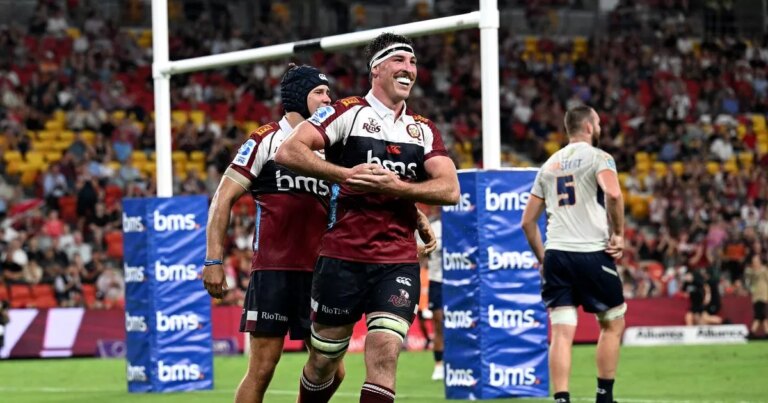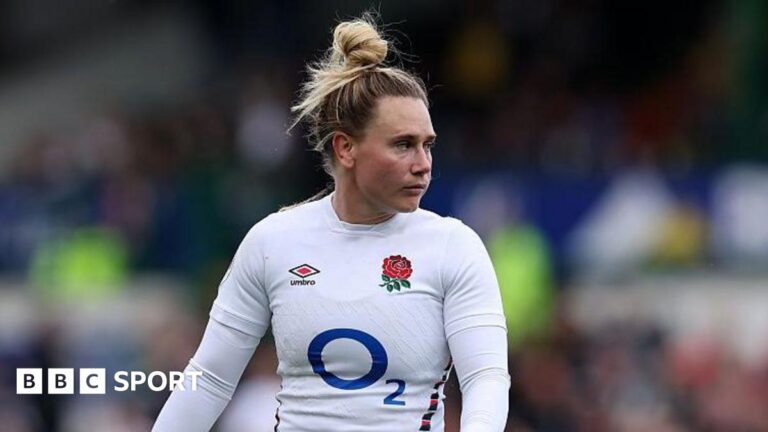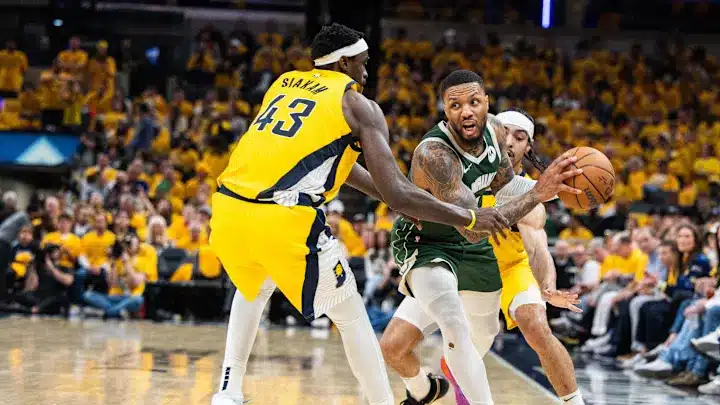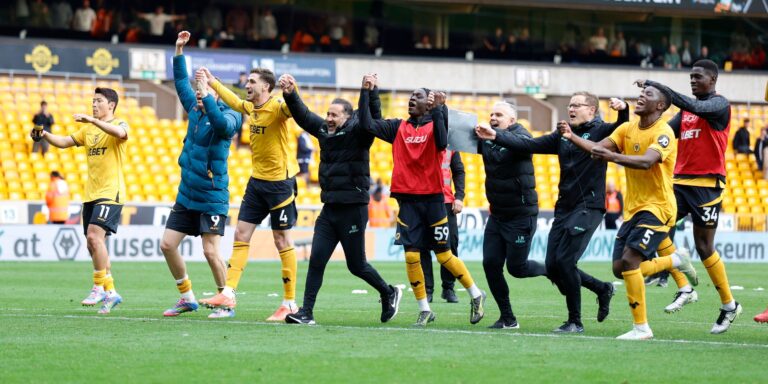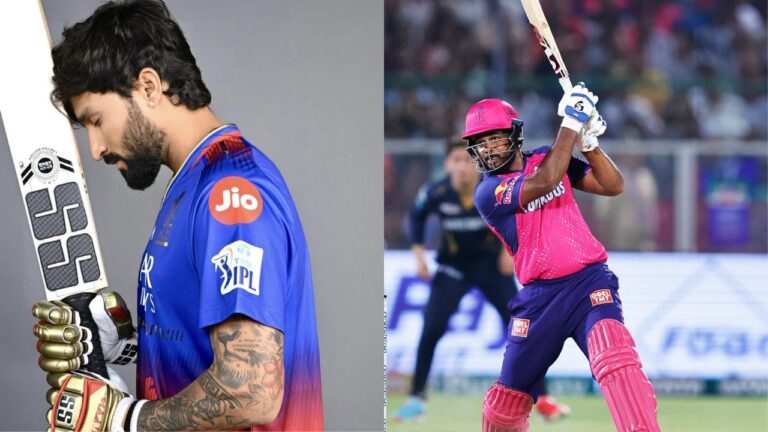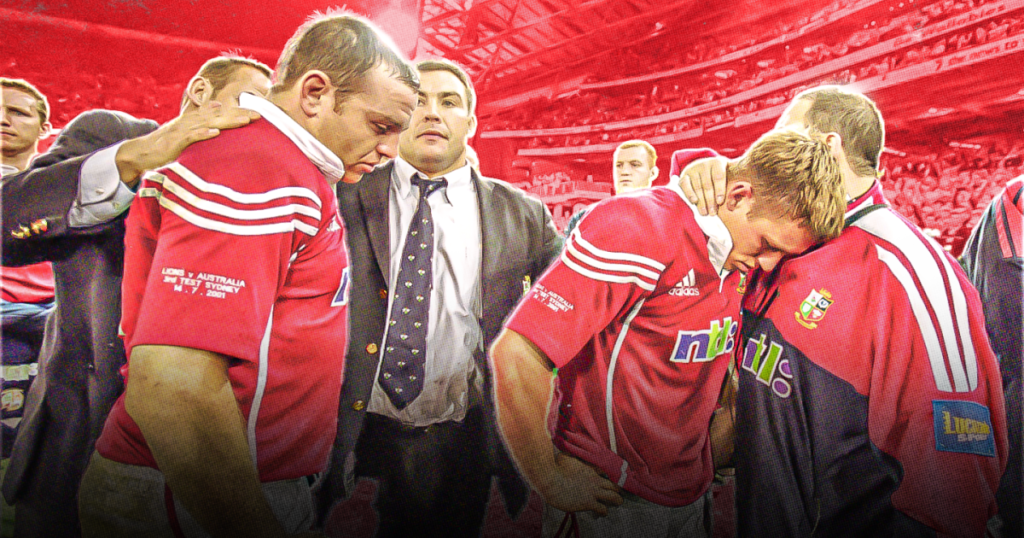
Not even the Great Redeemer managed to pull this one off. In fact, many blamed the self-same man, Graham Henry, for all that did go wrong on a trip which started so brightly yet fell apart to give the Wallabies their first ever Series victory over the Lions. Captain, Martin Johnson, was having none of that buck-passing, though, noting, in what turned out to be a troubled tour: “from the moment the first whistle blows to the moment the last whistle sounds, it is the players’ game. It is the players’ fault we came up short.”
Johnson, the first two-time captain in Lions history, carries with him to this day a sense of regret at seeing the Series slip after the first Test heroics at the Gabba where the Sea of Red made its maiden appearance and where Waltzing O’Driscoll was born. From that high point to Johnson himself getting beaten at a crucial, late lineout out in the third Test in Sydney: on such margins.
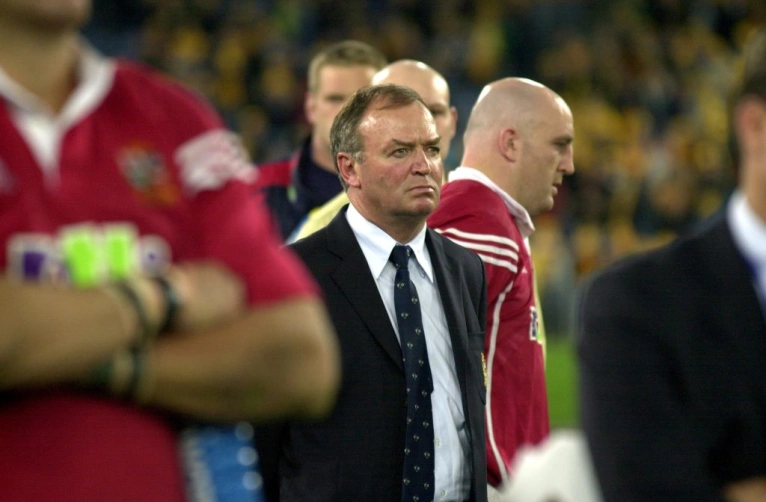
Of course, from joy to heartache is invariably the definition of a Lions tour and provides an answer as to why we all keep coming back for more. Twelve years later in Australia the smiles would be on Lions’ faces. And now, in 2025? Good question. If the upcoming series generates as much heat as the 2001 trip did there will be no complaints.
The appointment of a New Zealander to coach the Lions had a contentious side to it. Clive Woodward took me to one side when the news came through on the wires during an England tour to South Africa in summer 2001 to check it was true. Woodward would get his chance later.
His England team, of course, had only just embarked on their way towards greatness, having drawn that 2000 series against the Springboks, their defeat in the opening Test in Pretoria turning out to be the last time they lost to a southern hemisphere side for three years, an unbroken run of success that culminated in their World Cup triumph in Sydney. Henry had beaten Woodward to the coaching punch in that he had managed to spectacularly turn around the fortunes of Wales within 12 months of taking on the mantle of head coach, registering 10 wins in a row and earning the Redeemer sobriquet along the way.
It would have been intriguing to know what would have happened if the 2001 tour had been to New Zealand and not Australia. Henry coach against the All Blacks? Interesting one.
That he was the first coach outside the home unions to get the honour of the Lions appointment did ruffle some feathers. It would have been intriguing to know what would have happened if the 2001 tour had been to New Zealand and not Australia. Henry coach against the All Blacks? Interesting one.
As it was, Henry’s achievements in Wales enhanced his CV and provided reason enough for the Lions to be bold in their appointment policy once they knew Ian McGeechan had decided he wanted to focus on other matters at that juncture. (Geech, of course, was persuaded to ride to the rescue one last time in South Africa in 2009).
Within months of returning from the Lions tour to Australia, though, it had all fallen apart for Henry in Wales, the ignominy of a 54-10 loss to Ireland proving the final straw. Henry returned to New Zealand. Things didn’t turn out too badly for him there, to be fair.
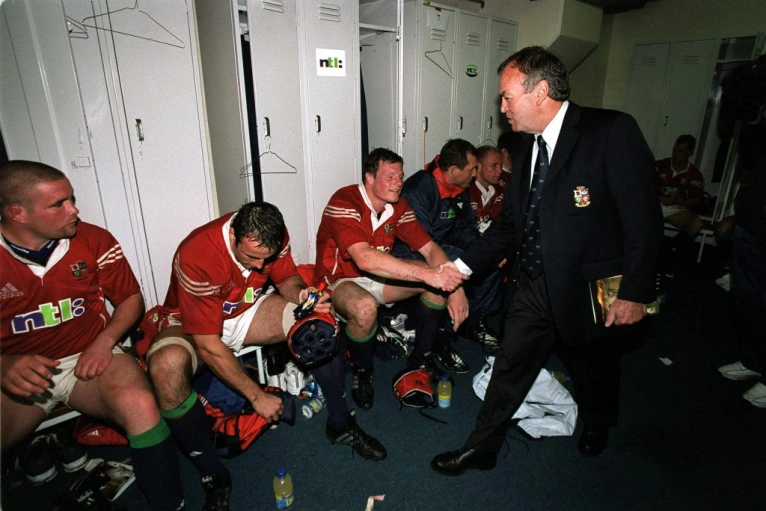
Yet Henry himself was to acknowledge eventually he hadn’t fully understood what the Lions were all about when he took the job. How could he? It is a unique experience, so, so different to a normal gig. The New Zealander got it wrong on various fronts: wrong in his dogmatic approach, wrong in beasting players in training, and wrong in focusing almost exclusively on his preferred Test XV to the detriment of squad morale. After the 28-25 loss to an Eddie Jones-coached Australia A side in Gosford in the fourth match of the tour, Henry made no bones about how he saw things.
“We’ll just have to prioritise the Test team,’” he said. What Henry didn’t appreciate until a few years later was a Lions tour requires a wholly different mindset, in a coach and in a player. There is no time to prepare properly, no time to drill formations, no time to sift through ideas and options. You have to put trust in the players, as Johnson himself said. Even if there is little time to chop and change, you have to give them the sense they all have a fair crack at making the Test XV.
McGeechan was the first to highlight the importance of the midweek team for creating the right mood music in 1989, for providing proper opposition in training, for staying on message. The same was true, so, so true, on the successful 1997 tour of South Africa. Here, it was different. England wing, Ben Cohen, was to remark he had been so looking forward to experiencing a Lions tour but by mid-tour he couldn’t wait to get home.
You’ll always get players grizzling and it’s usually those who don’t make the Test team.
Not much went the way of the Lions. There was tragedy of a major kind when the popular Aussie liaison officer, Anton Toia, suffered a heart attack while swimming off Coffs Harbour and passed away.
Injury bedevilled them. Eight players – such as Lawrence Dallaglio (knee), Mike Catt (calf), Rob Howley (ribs) and Dan Luger (eye socket) – were forced off tour. The Lions had brought 37 players, seemingly to protect against such mishaps yet seven were summoned at different times. The flipside of having such resources is some players saw hardly any action and resentment festered.
“You’ll always get players grizzling and it’s usually those who don’t make the Test team,” said Henry bluntly.
The sense of disenchantment festered. And that despite a reasonable build towards the first Test. The Lions scored 31 tries in amassing 199 points across their first two matches against Western Australia in Perth and a Queensland President’s XV in Townsville. The opposition was too flimsy to do the Lions any real good.
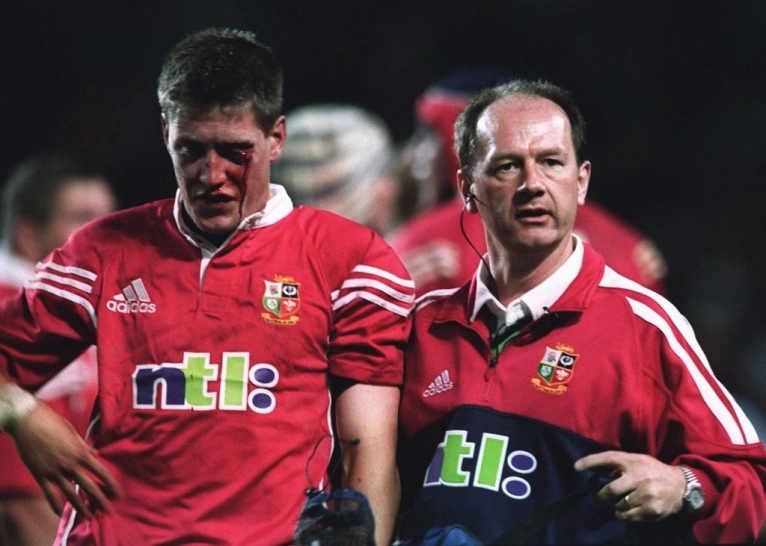
They were tested, and bested, by Australia A and partially beaten up by NSW Waratahs in Sydney, or, rather, Ronan O’Gara was when set upon by former Saracens full-back, Duncan McRae. There were five yellow cards, one red (for McRae) in a bruising 41-24 victory for the Lions.
And so, to showtime, at the Gabba, that storied cricket venue pressed into use due to the renovation of other stadiums in Brisbane. The Gabba fell to the Brits and Irish that night, off the field as much as on it. Yet it was to prove something of a transformative experience for Australian rugby. Even though they were two-time world champions, the sport struggled to make inroads on the Aussie mindset. Once ARU supremo, John O’Neill, saw the massed ranks of red at the Gabba – some 18-20,000 strong – he knew he had to take action.
By the time the second Test in Melbourne came around, he had issued rallying cries to the public and backed that up by giving out thousands of free gold-and-green hats and scarves. There was a resurrection job to do on the field, too, after the Lions had romped to a 29-13 win. Jason Robinson, with little more than a few minutes of Test rugby under his belt when he came on tour, set the tone in blistering style when dipping in and then rounding Wallaby full-back, Chris Latham, within four minutes of the start.
Some felt it was sour grapes on Dawson’s part as he had missed out to Howley on the Test spot. In fact, Dawson’s grievance was real and long-standing.
It was 12-3 at half-time and a Test still to be won which it effectively was once Brian O’Driscoll had slalomed his way to the try-line shortly after the restart. It was an emphatic victory and a fabulous occasion.
The celebratory tone was offset somewhat by publication in The Daily Telegraph that Saturday morning of ‘Dawson’s Diary,’ an unflinching account of the first four weeks of the tour by England scrum-half, Matt Dawson. It pilloried Henry in particular. Some felt it was sour grapes on Dawson’s part as he had missed out to Howley on the Test spot. In fact, Dawson’s grievance was real and long-standing. He had dutifully kept a record in a diary from day one. I had knocked his thoughts into shape for him.
Johnson made a telling remark. “Who knows what any of us might have said if we’d been caught at an unguarded moment?”
Austin Healey had also gone into print, infamously labelling Australia A lock, Justin Harrison, ‘a plank’. The Plank, of course, had the final word for it was he, a Test debutant, who stole that crucial line-out from under Johnson’s nose in the third Test.
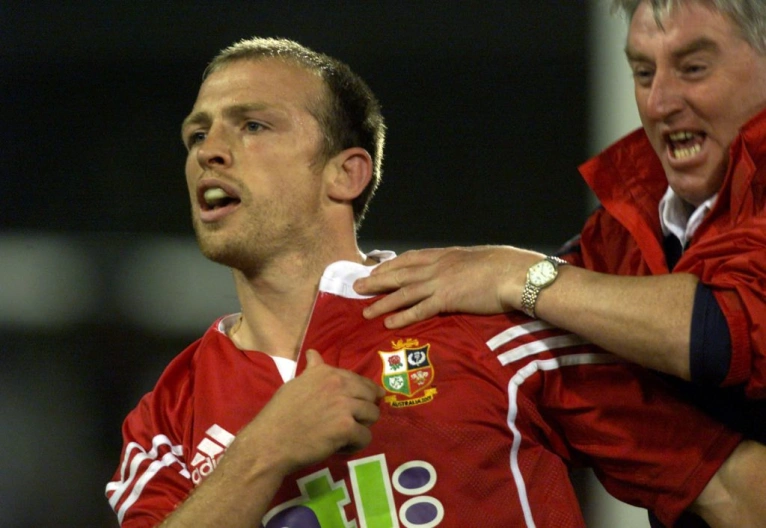
Dawson and Healey felt the heat in the aftermath. Perhaps it was that which spurred them to a remarkable double act when saving the Lions from a morale-sapping defeat to ACT in Canberra on the Tuesday between the first and second tests. The Lions were trailing as full-time approached only for Healey to grab a last-minute try. It still needed converting though for the win and it was Dawson who slotted it from the touchline.
The Lions carried that midweek form into the first half at the Colonial Stadium in Melbourne. That they were only 11-6 ahead at the interval beggared belief. And then it all went horribly wrong. Richard Hill, so unstinting, so influential, was taken out by a wild elbow from Wallaby centre, Nathan Grey. Jonny Wilkinson, meanwhile, erred when throwing a wide pass plucked off by Aussie wing, Joe Roff, who was also to take advantage of a rare disintegrating Lions scrum to hot-foot it to the try-line. Disaster. 35-14 to Australia.
The third week was a shambles. The Lions were spent in body and mind. They couldn’t even manage one full-on training session. They were reduced to summoning Scotland scrum-half, Andy Nicol, from a supporters’ tour on the morning of the third Test to sit on the bench. Even so, the Lions almost pulled it off, their late rally thwarted by Harrison’s line-out heroics. 29-23. What might have been.
Henry believed future tours should be trimmed to one game a week so as to spare the players. But that wouldn’t be a Lions tour. The difficulty is what makes it special. And Australia in 2001 proved it.
